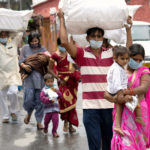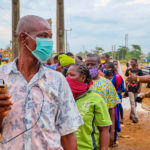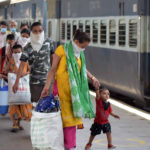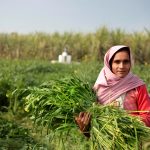On March 24 2020, the Indian government announced a nationwide lockdown to slow the spread of COVID-19. Implemented with just four hours’ notice, the lockdown forced millions of suddenly out-of-work migrants to return to their villages –often by foot over long distances. How can migrant-sending states support labor market opportunities for migrants without compromising COVID…
G²LM|LIC COVID-19 Research Meeting
Is Heading Home a Dead End? COVID-Induced Migration and Local Labour Market Opportunities in Rural India
Leveraging “Big Data” to Improve Labour Market Outcomes
Rapidly expanding internet access has dramatically changed job search behavior across the developing world. This expansion has coincided with the growth of private-sector online job portals that provide search and matching services. Despite these technological advances, labor markets in many low-income countries continue to face high unemployment and persistently low female labor force participation. As…
What Can Online Vacancies Tell Us About Labour Market Conditions in Lower-Income Countries? Evidence from India
Over the last decade, the rapid diffusion of internet technologies in lower-income countries has changed how employers and workers interact in the labor market. While the initial boom in online recruitment focused on higher-wage occupations, there now exist online search and matching services for lower-wage occupations, from domestic work to entry-level retail jobs. Harnessing these…
Gender Differences in the Effects of the ‘Great Lockdown’ on Time Use
This research will address whether and how the coronavirus pandemic exacerbates barriers to gender parity in developing countries by asymmetrically affecting time use for men and women. The effects of COVID-19 are likely to differ by gender (Alon et al., 2020), but the nature and extent of those differences are uncertain. The study, therefore, proposes…
Migration, Changing Residence Patterns, and Covid-19 in India
Informal insurance through family members and temporary migration are among the most important ways that individuals in low-income countries mitigate economic shocks. Covid-19 makes these traditional means of informal insurance socially costly. Temporary or permanent migrants respond to the negative economic shock of the pandemic by returning home to co-reside with family members and risk…
A Tough Call: Understanding the Impact of Mobile Technology on Women’s Work, Gender Gaps, and Social Norms
As digital technology becomes an ever-growing part of economic life in low-income countries, researchers and policymakers face a moment of both opportunity and risk: technologies like smartphones and mobile internet could connect millions of marginalized women and girls to the modern economy, generating new opportunities for employment and human capital accumulation. However, there is a…
Wage Compression in Low Income Labour Markets
Do relative pay comparisons matter for worker behaviour? A long tradition in economic thought – as well as in psychology, sociology, and human resource management – has advanced the notion that individuals care about not only their own pay but also their pay relative to that of their co-workers. When subjected to unequal pay, workers…
The Urban Geography of Entrepreneurship and Growth in India
Rapid urbanisation is a major phenomenon in many developing countries. Cities are the engines of economic development; however, little is known about what determines the success of cities in developing countries, nor about the factors that shape the characteristics of rapid urbanisation. The historical literature on urban economics is rooted in the rise of the…
Empowering Women through Public Policy
In 2005, India’s Parliament passed the Mahatma Gandhi National Rural Employment Guarantee Act, a landmark in social protection legislation for the country. The Act moved employment into the domain of legally enforceable rights for a population no less than 120 million, making it the largest work/welfare programme in the world. Since 2009, the eponymous anti-poverty…








